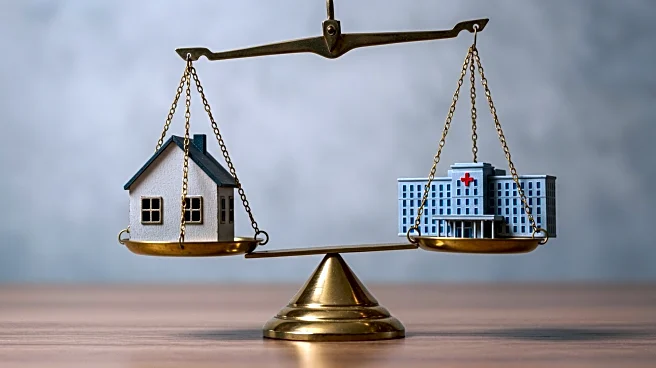What's Happening?
A recent presidential executive order has sparked debate by advocating for the institutionalization of homeless individuals, a policy reminiscent of pre-1980s practices. Critics argue that this approach disregards the success of housing with support, which is more humane and cost-effective. The order also fails to address the need for mandatory treatment for individuals with brain disorders who engage in criminal conduct. Jackie Sartoris, the district attorney of Cumberland County, highlights the challenges faced by communities dealing with untreated mental health issues and the limitations of current legal frameworks in addressing these problems.
Why It's Important?
The executive order has significant implications for public policy and social services in the U.S. It challenges the progress made in mental health care and homelessness support, potentially leading to increased costs and ethical concerns. Communities and law enforcement may face heightened frustration as untreated individuals continue to cycle through the system. The order could shift resources away from successful housing initiatives, impacting vulnerable populations and straining social services.
What's Next?
Stakeholders, including social service providers and legal experts, may push for policy revisions to balance public safety with humane treatment. Advocacy groups are likely to challenge the order, emphasizing the need for comprehensive mental health care and support systems. The debate may lead to legislative efforts to protect the rights of individuals with mental health issues while ensuring community safety.
Beyond the Headlines
The order raises ethical questions about the rights of individuals with mental health disorders and the role of government in mandating treatment. It may prompt a broader discussion on the balance between individual autonomy and public safety, influencing future policy decisions in mental health and homelessness.








